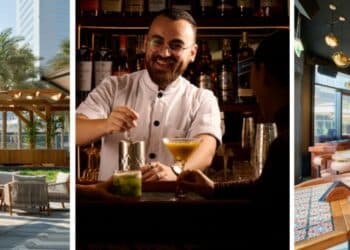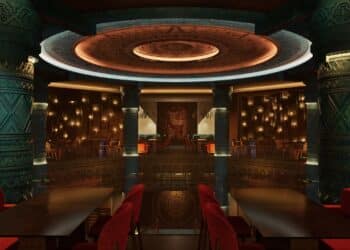Crystal Chesters, editor of Catering News ME, talks about F&B authenticity in a challenging market.
Consumer tastes in the UAE – the most mature hospitality market in the Middle East – are changing rapidly, and both the F&B and accommodation sectors must adapt quickly to cater to new demands.  A trend, which has been evolving over the last few years and will continue in 2016, is the need for authentic, homegrown experiences, and this permeates the whole hospitality industry.
A trend, which has been evolving over the last few years and will continue in 2016, is the need for authentic, homegrown experiences, and this permeates the whole hospitality industry.
F&B operators are embracing this more readily than hotels, with some of Dubai’s homegrown concepts, such as casual French restaurant, Bistro Des Artes; comfort food, sharing outlet Fume; and Japanese restaurant and lounge, Okku, just as, if not more popular than international, celebrity-backed brands.
The hotel industry on the other hand, faces a number of challenges when it comes to shaking off the shackles of the big chains to provide an authentic, homegrown accommodation concept. And the usual setbacks are exacerbated in 2016, with hotel supply set to increase by 20% and geopolitical and economic challenges, such as the weak euro and low oil prices, putting pressure on everything from air tickets to hotel rates.
While the boom years of 2007 and 2013 may have provided the perfect backdrop for owners to slash hefty operating fees and try their creative hand in defining a new hotel concept, 2016 is about maintaining market share. This year, hoteliers are playing it safe and counting on the sales, distribution and marketing power of big brands, rather than risking going solo, and having to rely exclusively on online travel agents to drive business.
F&B providers, however, don’t have to worry about being chained to the OTAs. The F&B online booking market is nowhere near as saturated as that for hotels, with the only major player OpenTable. More often than not, social media and review sites, such as TripAdvisor, are perfect for communicating a homegrown brand story when it comes to F&B.
However, a word of warning to new F&B players from the experts interviewed in our cover story New Kids on the Block (p29), is to do the homework on location, concept and demand, and to provide value for money. This year, with a huge influx of new restaurants, including a number under the same umbrella – such a Peruvian or Spanish – those outlets offering affordable, good quality menus are likely to be the winners.
And for both the F&B and accommodation sectors, there is a huge opportunity for collaboration, which allows for the sharing of resources and profits, and can generate a positive halo effect across brands. For hotels looking to reduce overheads while injecting a slice of local authenticity into a branded property, leasing out a venue, or entering into a joint venture agreement with a third-party operator could be the answer. Meanwhile, F&B operators partnering with big hotel brands can look to benefit from reduced costs, a prime location, alcohol licensing and the streamlining of resources.
The future for the UAE is homegrown authenticity, but operators across the hospitality industry must be savvy and take heed of the challenging market conditions this year presents. The winners will be those creative, agile brands that can safely navigate the bumpy road ahead, while being bold enough to stay ahead of the curve.


































































